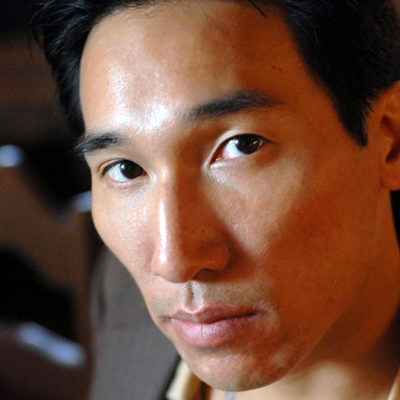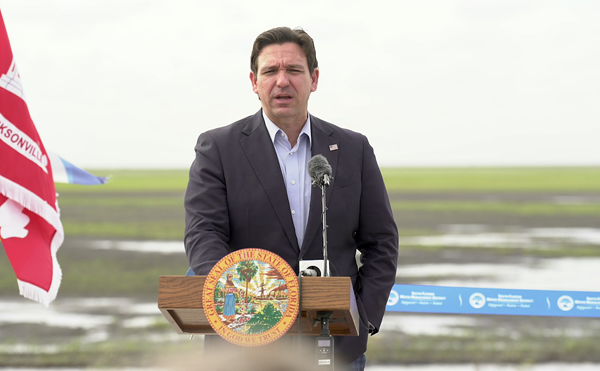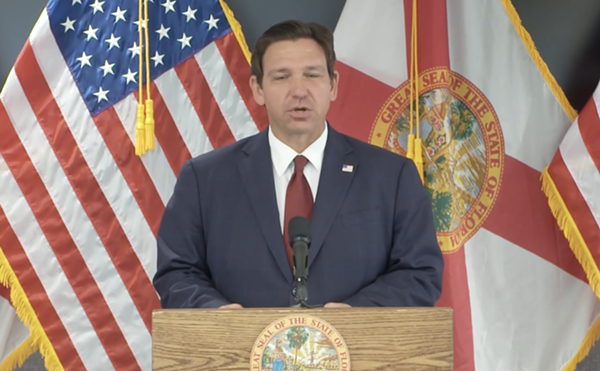The Tea Party's impact on U.S. politics is a matter of record. Despite the fact that a majority of the public says the party doesn't speak for them, the two-and-a-half-year movement has exercised an amazing amount of influence, most recently in last week's CNN/Tea Party-sponsored GOP presidential debate in Tampa. The Conservative Political Action Conference (CPAC) in Orlando on Sept. 23 is expected to draw a huge contingent of Tea Partiers, whom the assembled presidential candidates will be trying hard to woo.
In Florida state politics, Tea Party activists helped ensure the victories of U.S. Senator Marco Rubio and Governor Rick Scott. But they weren't a major factor in local politics until a year ago, when Hillsborough's transit tax/light rail proposal went up before voters. Karen Jaroch and Sharon Calvert led the fight to defeat the tax, and they also played a leading role in advocating that Governor Rick Scott reject federal funding for high-speed rail earlier this year. An organizer at a Pinellas Patriot meeting back in July identifed them as the "two women who helped stopped high-speed rail in the U.S." That made the irony all the richer last month when the Hillsborough County Commission voted to put Jaroch on the board of the Hillsborough Area Transit agency.
But so far this year the movement has been relatively quiet in Tampa. "We have not been very unified in public about it up to this point," says Jaroch, who's active in the Tea Party group Tampa 9.12. "That does not mean that we won't be in the future."
In Pinellas, however, Tea Party politics have arrived with a vengeance. Nowhere was the rage more evident than in a Tea Party protest during a Pinellas Board of County Commissioners workshop in late August. A demonstration last week in Clearwater was considerably quieter, but it's clear that there's enough underlying anger and distrust among certain sectors of the populace in Pinellas that the movement can only grow.
The main source of Tea Party discontent last August was a proposal to spend $15 million in Penny for Pinellas funding on affordable housing. The countywide interfaith group FAST (Faith and Action for Strength Together) made the proposal; the funding had originally been set to go into effect in 2017, but FAST contended that the need for affordable housing in the county was immediate and the funds needed to be put in place now.
Speaker after speaker came to the dais, blasting the board for even contemplating such an expenditure, saying — inaccurately — that when Pinellas voted to approve the tax in 2007, affordable housing was never advertised as part of the mix.
To add to the misinformation potpourri, prior to that meeting, Steven Lange, executive director of the group Pinellas Ink, emailed his followers that Commissioner Ken Welch had proposed giving $15 million directly to FAST, and that the commissioner wanted to use Penny funds for a FAST foreclosure prevention plan.
Those charges as were off base as well.
At several points in the August meeting, the activists' voices got so loud that Commission Chair Susan Latvala asked them to pipe down. Later, while Commissioner Ken Welch was talking, a woman unnerved him when she walked up to him and dropped off a piece of paper. Later a man jumped up to the dais and expressed his dissatisfaction by repeating the tag line, "Show me the carfax!"
The Tea Party campaign against FAST had already begun by the time of the Aug. 23 County Commission workshop. Steven Lange circulated an email comparing them to other favorite conservative bogeymen, such as ACORN and the S.E.I.U., the national labor group prominent in Democratic party politics.
At the workshop, Glenn Pav said it was "deplorable" that commissioners would "kowtow" to the group, while Kim Cameron from Oldsmar asked rhetorically whom the board pledged allegiance to — the U.S., the U.N., "or the devil?"
Ultimately, the proposal to move the affordable housing funding lost on a 4-3 vote.
Rabbi Michael Torop from Temple Beth-El called the negativity about FAST "truly a misrepresentation" of what the group is all about. He says it has over 40,000 members, making them anything but a special interest group, but a broad-based coalition concerned about issues of social, racial and economic justice.
But since the election of President Obama and the ascension of Glenn Beck, "social, racial and economic justice" have become negative buzzwords for the right. During the Pinellas workshop, Glenn Pav called FAST "neighborhood organizers," and he didn't mean it as a compliment. He and others also said FAST was part of something called "Agenda 21."
Similar sentiments were expressed at a lunchtime forum at the Florida State Fairgrounds hours before the debate last week. A Daytona Beach Tea Party member growled that Agenda 21 "is the most scary thing that we know," claiming that some of our national parks are controlled by the United Nations.
Looking a bit befuddled, CNN's John King could only mutter that "passion on that [issue] is quite evident," before quickly segueing to another question from the crowd.
Agenda 21 is a 19–year-old United Nations initiative that Tea Partiers claim is forcing the creation of sustainable development projects in the United States. Tea Partiers fear it has infiltrated local governments with a smart-growth agenda that will result in the loss of property through eminent domain and increasing land restrictions.
But it's questionable whether any member of the Pinellas BOCC had ever heard of the plan.
Asher Miller is executive director of the Post Carbon Institute, based in Northern California. He says it's difficult to detect the logic behind the fear, but says essentially the complaints are "just another manifestation of the environmentalism=big government/socialism meme."
He adds that such conspiracists see some kind of UN cabal pushing for urbanization, using eminent domain to "usurp personal land rights and environmental sustainability."
Such thinking might tempt a liberal to consign the Tea Party to the Lyndon LaRouche camp. That's certainly the Democratic party line.
"I think the Tea Party's views are so outside of the mainstream that they would never be embraced by moderates, which the majority of Americans are," Democratic National Committee Chair Debbie Wasserman Schultz told CL after the CNN/Tea Party debate.
But Jacksonville-based Tea Party leader Billie Tucker was exultant about the CNN partnership. She shared the dais with three much more establishment Republicans at the pre-debate luncheon.
"When we showed up in the streets of Washington [on September 12, 2009]," she mused to the crowd, "they all thought we'd go back home... but here we are in Tampa, Florida having our own debate with CNN! Thank you, John King for making this happen — you realize we're not a bunch of three-headed monsters and crazy people." The throng stood and cheered.
But can Tea Partiers get along with others? A CNN poll released last week showed a fissure inside the GOP between establishment and Tea Party Republicans, a division exemplified at last week's demonstration outside the Pinellas County government building in Clearwater.
Held just before the County Commission was scheduled to vote on the fiscal year 2012 budget, the protest attracted 30 people, some aligned with Tea Party groups, who railed against a first-time charge for cars to enter into two county parks, as well as a tax increase for emergency medical services. At the public hearing, one speaker, Dr. David McKalip, blasted the Republican-dominated board for increasing taxes, and said he was particularly disappointed in board chair Latvala.
That meeting was relatively mild compared to the August debacle, but Lange had set the scene for a showdown. In another email he circulated before the meeting, he wrote, "Do not let Karen Seel or any other County Commissioner stick it to us," and called staff members "those coach roaches."
If Tea Party activists can't get along with other Republicans, does this mean more divisiveness for our politics?
Pinellas Commissioner Ken Welch says it doesn't augur well for the future.
"I certainly don't deny them their right to be in a debate," Welch says of the activists, "But that has to be a debate and not a monologue."
But Steven Lange apparently has no problem with one-sided declarations. Before the Aug. 23 workshop, he sent an email to Welch, saying, "I do not like your brand of politics... I will be working to unseat you in the next election," before concluding, "Politics is a contact sport. I say no correction; no apologies."
The electoral chances of local Tea Party candidates in Tampa Bay remain to be seen. Josh Burgin ran an unsuccessful Tea Party campaign against Mark Sharpe in a GOP primary for county commission last fall. But in St. Petersburg, the outspoken Dr. McKalip, who appeared at a 9.12 event in Lakeland two years ago with Marco Rubio, has announced he will run for the District 4 City Council seat in 2013.















